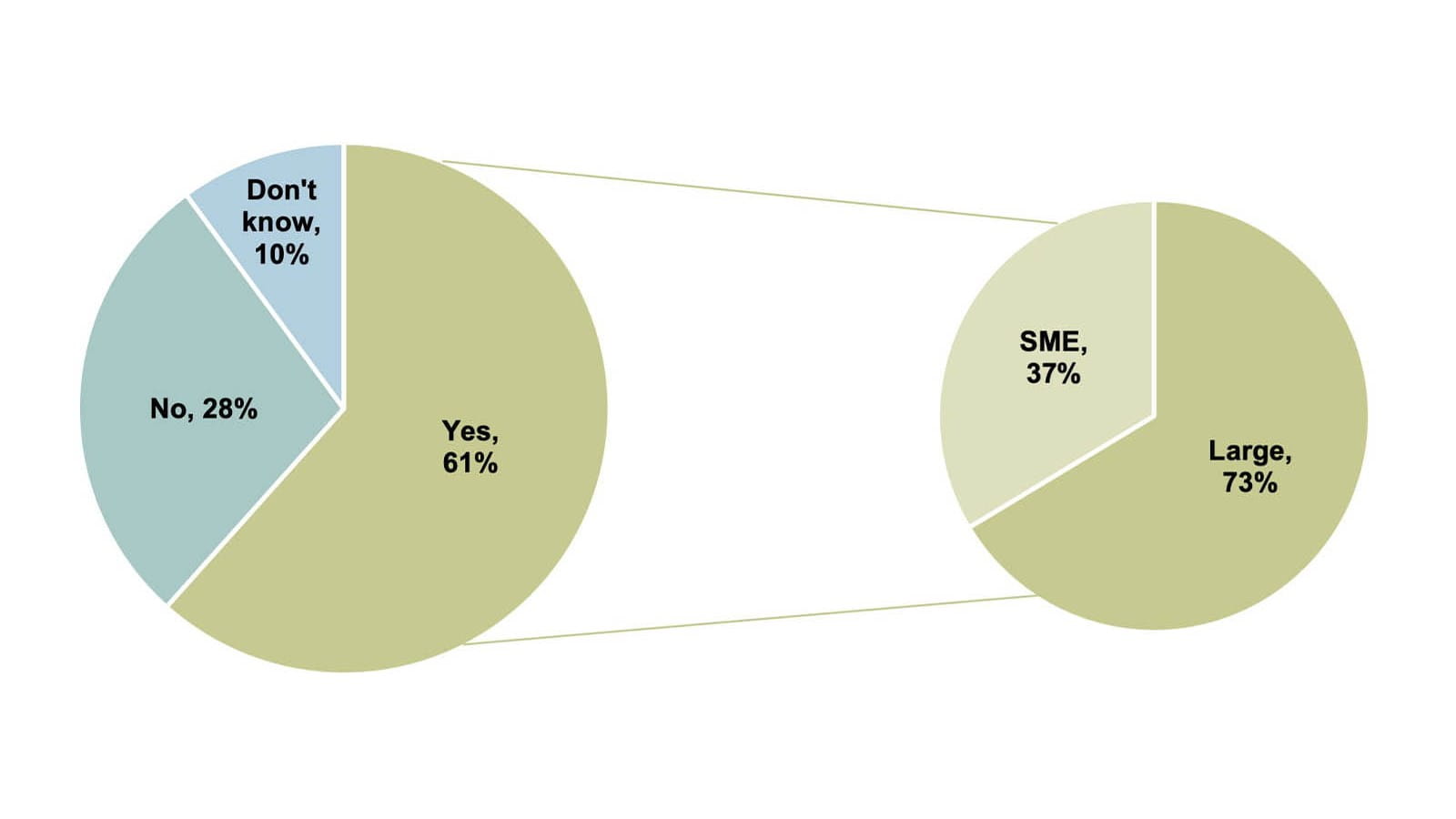ICAEW members were surveyed to gauge how their organisations are addressing climate change in the latest ICAEW Business Opinion survey. This found that overall awareness of climate issues has increased, with almost half of members knowing the World Economic Forum Climate Governance principles.
Increases across the board
The survey found that across the board there was an increase in climate-related activities compared to 2019. Encouragingly, two thirds of organisations have undertaken initiatives to help address climate change, with almost a half of those surveyed having climate change embedded in their organisation’s strategic planning process and risk management (up from one third in 2019).
In terms of setting targets and using metrics, just over half of the organisations of members surveyed do not have anything in place to manage climate-related risks and opportunities. For those that do have targets in place, 69% have targets that are science based, with the majority of those being in large organisations. It appears that the majority of organisations do not have management remuneration linked to the delivery of climate targets (this is aligned with 2019 findings).
Taskforce for Climate Related Financial Disclosures (TCFD)
Given that it will be mandatory for large organisations to disclose against the TCFD recommendations from April 2022, it was important to gauge how well prepared the membership are to implement the recommendations.
Twice as many respondents were aware of the recommendations than in 2019, however 69% of members surveyed still showed low awareness of the TCFD recommendations on voluntary climate-related financial risk disclosures. The majority of those in SMEs were unaware – this does not come as a surprise given that mandatory climate-related disclosures are only expected to impact the largest organisations.
Of those that were aware of TCFD, over two thirds of members felt their organisations had sufficient information on how to implement the recommendations. Interestingly, when we cross reference the results with those that are very involved in external reporting (who tend to be a Finance Manager/Controller or above and many of them working for SMEs), 38% of these members felt that they don’t have a sufficient level of information. This is probably because ‘they know what they don’t know’ unlike those who are not involved in external reporting and may be skewed by those working in SMEs.
In terms of undertaking actions in response to the TCFD recommendations, almost two thirds of members who were aware of TCFD felt their organisations had been implementing actions, up from 49% in 2019. When grouped by business size, 73% of large organisations had undertaken actions whereas only 37% of SMEs had taken steps in response to the recommendations.
Has your organisation undertaken any actions in response to the TCFD recommendations?

The results of the survey showed a mixed response on how organisations felt they were prepared to report in line with the TCFD framework. For those organisations where it is mandated, the majority of members feel they are prepared to report in line with the TCFD framework, however those that are involved in external reporting are more likely to say their organisation is not prepared.
Is climate change on board agendas?
When asked if climate change is one of the standing items on board agendas, only 33% of members said it was, however, as many have this included in strategic processes, this may be embedded within other board items.
On all of the climate-related activities that organisations engage in, we asked members if they compare to or measure themselves against those in the industry or peer companies. 57% of those working in large organisations do compare across the industry but only 26% of those in SMEs make the comparison. The lower number in SMEs may be due to lack of measurement resources, and access to data across comparable organisations as only 29% of SMEs who have climate-related targets make their climate targets publicly available.
About the survey
Questions were added to the back of the Q2 Business Confidence Monitor survey, where businesses were asked about their approach to addressing climate change risks and opportunities. 602 telephone interviews were conducted in July and August 2021 with UK senior business professionals (ICAEW Chartered Accountants) working in all types and sizes of business, across every economic sector and UK region.
COP26: acting together
Find inspiration, information and practical resources to support the goals of the UN Climate Change Conference in Glasgow and explore why it represents a critical time for the profession.



